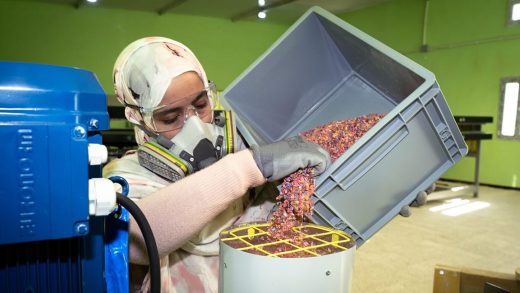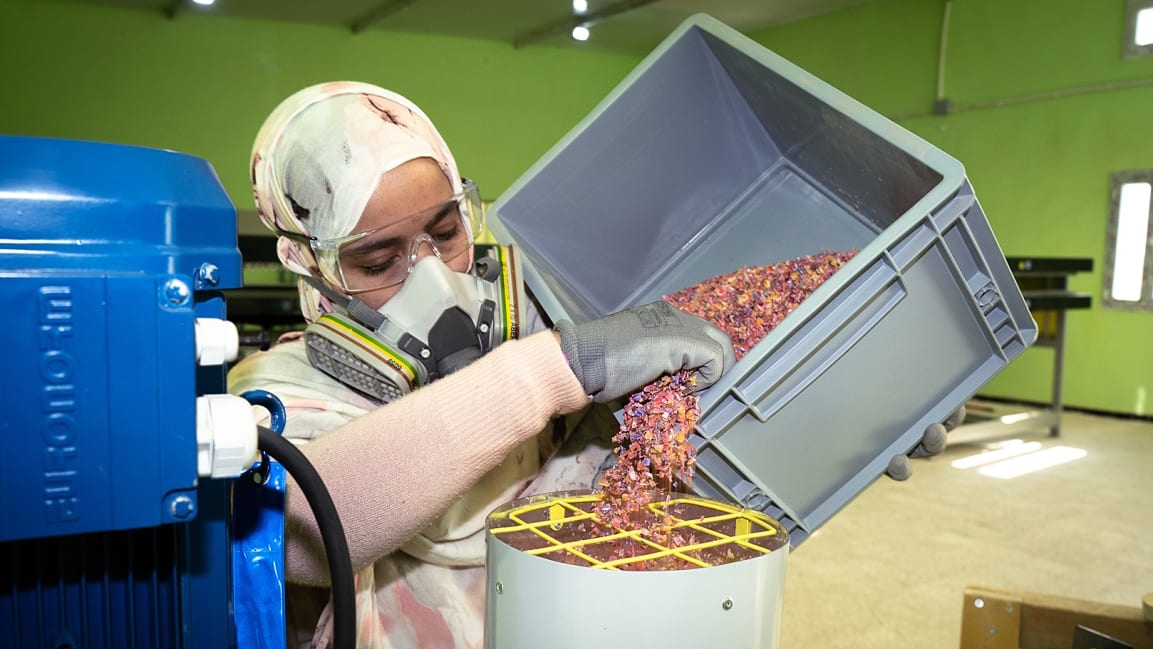The Sahara desert is full of plastic trash. This refugee camp is recycling it into new products
In the middle of the Sahara desert on the western border of Algeria, refugee camps hosting tens of thousands of people rely completely on humanitarian aid: Water, food, and other basic supplies come in on trucks. Trash, on the other hand, doesn’t really leave; until recently, all the waste from the camps was dumped nearby in the desert into an ever-growing pile of plastic. But at a new recycling center at one of the camps, refugees are now turning that plastic trash into furniture and other products that they can use.
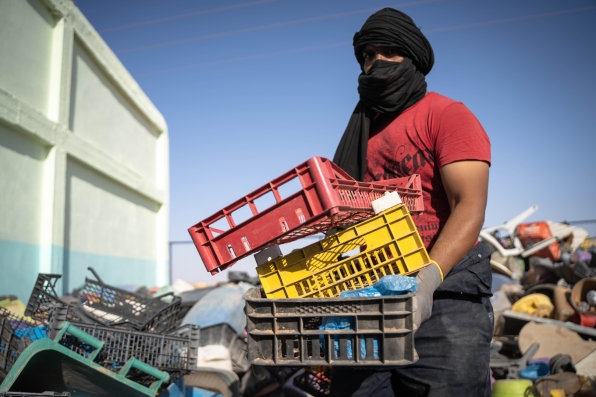
Precious Plastic, an organization with a DIY recycling system developed by a Dutch designer who wanted to make recycling more accessible, helped set up the center after the United Nations refugee agency, UNHCR, put out a call for solutions to help with the waste challenge at the camps.
“They were looking for a way to solve two problems,” says Joseph Klatt, managing director at Precious Plastic. “One, they have a large refugee population there with a high unemployment rate. Everything is brought into the camps, so there’s not a lot of economic activity going on. And secondarily, there’s a lot of waste in the camp. They were looking for a solution to create a new business from processing the plastic waste and providing some economic activity for the refugees.”
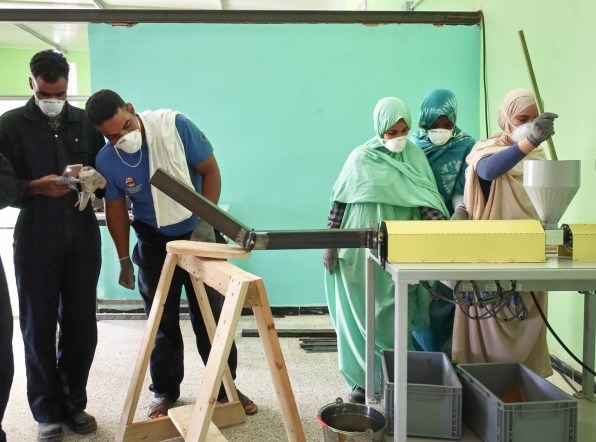
In late 2021, a U.N. team built a new building to house the recycling center, and Precious Plastic built all the necessary equipment, packed it into a shipping container, and sent it off to Algeria. One machine shreds the plastic into tiny pieces. Other machines wash and dry them. Then the plastic pieces can be melted down and shaped into new objects. In another approach, the plastic pieces can be spread out on a table, arranged into a pattern, and pressed into flat sheets used to make furniture.
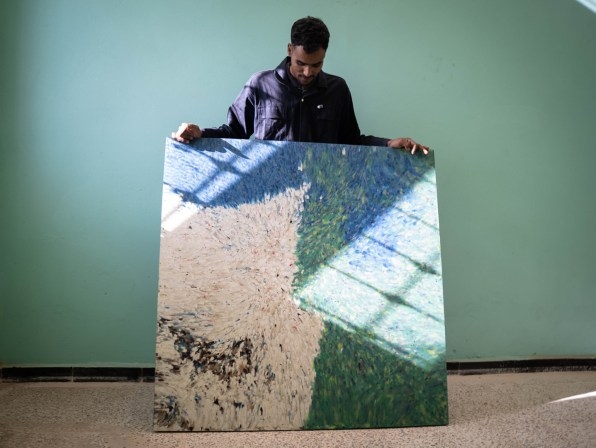
After some training, refugees at the camp quickly started sorting and processing plastic and making products that they needed, including school desks, benches and chairs, and serving sets for tea.
“We had a few design sessions where we talked about what’s possible and how to use this plastic material,” Klatt says. “And then they were just super stoked on coming up with ideas that made sense to them—furniture styles that they’re used to, and different ideas they had.”
The U.N. is paying a group of refugees to work at the recycling center for the first year of its operation; thereafter, refugees will become part owners in the facility. The first products will be sold to nongovernmental organizations who support infrastructure, like schools at the camps, and have the means to buy the furniture.
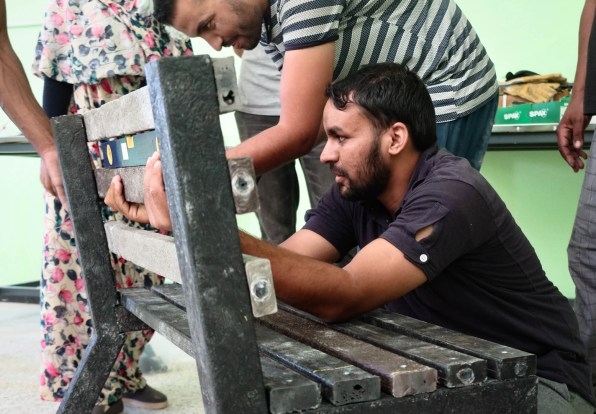
It’s not clear when refugees will ever be able to leave the area; Sahrawi people first fled from Moroccan troops in the 1970s, and many people have lived in the camps their entire lives. But the project is one small attempt to improve life in the area. The same system could be used at other refugee camps.
“It’s almost like an island context—a somewhat closed ecosystem,” Klatt says. “There’s an opportunity to try to create a circular economy within that community.”
Fast Company , Read Full Story
(18)

